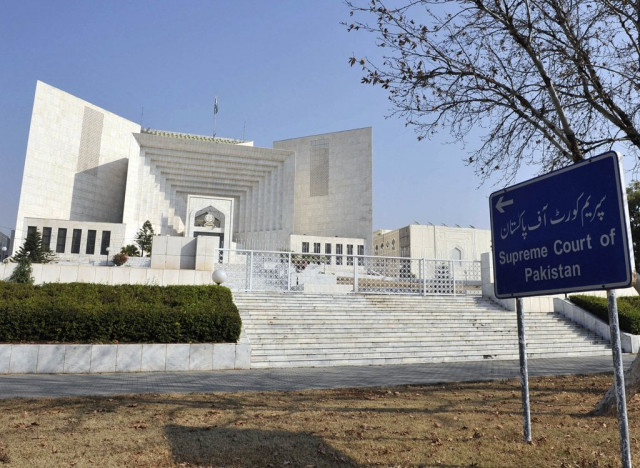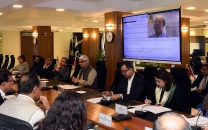SC takes suo motu over appointment of NAB DGs sans rules, regulations
Apex court bench says no such rules have been framed to date

The Supreme Court on Friday took suo motu notice to examine chairman National Accountability Bureau's (NAB) authority to appoint director generals in the anti-graft body sans rules and regulations.
A division bench of the apex court, comprising Justice Qazi Faez Isa and Justice Mushir Alam, while issuing a written order noted that the court has been informed that DG NAB has been appointed by the chairman in exercise of power under section 25 (g) of the National Accountability Bureau Ordinance 1999, which says that for time being, chairman NAB shall not be required to consult the Federal Public Service Commission for making appointments and matters relating to the qualifications of persons for such appointments and method of their recruitment shall be in accordance with rules.
The order further notes that under the law, chairman NAB is bound to exercise his power under rules. However, the bench lamented that no such rules have been framed to date.
The court also asked NAB's prosecutor general to satisfy the court as to whether the subordinate legislation, the mandate of the Constitution under Articles 242 read with Article 240 can be bypassed in making such appointments.
The court directed its office to prepare separate file as suo motu and fixed the matter for consideration of that point.
Since the matter is related to the interpretation of Constitution and law, the bench has also issued a notice to the attorney general for Pakistan to assist the court.
Earlier, the court held the anti-graft body responsible for delay in deciding corruption cases, observing that its investigation officers did not have the qualifications and capabilities.
The court had also observed that there was no system in NAB to check the quality of investigation.
The bench had also remarked that NAB tried to correct its mistakes after filing the reference and courts faced difficulty over deciding on erroneous references. “Delays in deciding corruption cases began with the NAB office,” it added.
During the hearing, it was revealed that NAB rules had not been made for 21 years. The court directed NAB to submit a report regarding formation of rules under Section 34 of NAB Ordinance within a month. “NAB SOPs cannot be a substitute for the rules,” it added.
NAB Prosecutor General Asghar Haider admitted before the bench that there were no rules.
The chief justice had remarked that the NAB investigation officers lacked capacity as they did not know the legal aspects. “Investigation continued for years and people got stuck in NAB for years. Instead of deciding cases in 30 days, people faced prosecution for 30 years.”



















COMMENTS
Comments are moderated and generally will be posted if they are on-topic and not abusive.
For more information, please see our Comments FAQ